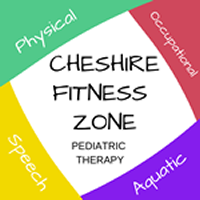Autism is identified as a developmental disability that shows up before age 3. It is part of a group of neurological disorders, this it may also affects a patient’s communication skills. If a patient experiences major problems in both speech and nonverbal communication, he or she may have autism spectrum disorder or ASD. Speech therapy is one of the treatments prescribed for autism and it can address a good array of communication problems. Let’s find out more about the role that speech therapy plays while a patient is being treated for autism.
A primer on speech therapy
For starters, speech therapists, who specialize in treating speech disorders and language problems, lead the way in helping with the diagnosis of autism. With their findings, they will determine whether it is necessary to make referrals to other specialists. These therapists are also called speech-language pathologists, and they are a key part of an autism treatment team.
When a patient is diagnosed with autism, speech therapy is recommended to enhance a person’s quality of life while improving communication. Throughout therapy, the patient’s family, school, and other autism specialist will get involved. If the patient is nonverbal, they will be introduced to alternatives to speech as well.
Common speech problems that are worth noting in autistic patients
Approximately one out of three patients with autism has trouble producing speech sounds. If they do, the sounds may be too hard to understand. Some of the common speech problems include:
- Tone of voice is unexpressive
- Echolalia; repeating what another person says
- Robotic-like speech
- Babbling
- Talking in a musical way
- Uttering harsh sounds, shrieks or grunts
- Being silent
The benefits of including speech therapy
Speech therapy is designed to improve overall communication. The programs in the therapy make it possible for patients with autism to improve their ability to function in day-to-day life and even form relationships. Some of the benefits of speech therapy include:
- Patient learns about self-regulation
- Patient finds communicating and interacting with peers enjoyable
- Patient can exchange ideas
- Patient develops better conversational skills
- Patient communicates at an appropriate time and place
- Patient knows how to initiate communication
- Patient gets better at articulating words
Some of the techniques used to achieve these benefits may include electronic talkers, signing, typing and more. Sometimes, the patient will sing songs that were composed to match natural flow, stress and rhythm of sentences.
Consulting a pediatric speech and language pathologist
To get started on your child’s treatment for autism, it is highly recommended that you consult a trusted pediatric speech and language pathologist such as Lynn Rose, MS, CCC-SLP. She has vast experience working with children of all ages and disabilities. Her specializations include treating orofacial myofunctional disorders, motor planning difficulties, oral-placement disorders as well as language and articulation disorders.
For nearly two decades, she has also worked as a clinician in private clinic and public school system settings. You can rest assured that your child is in good hands, as Lynn is also a therapist at Cheshire Fitness Zone, and providing speech therapy in CT for different types of patients, including those battling with autism.



